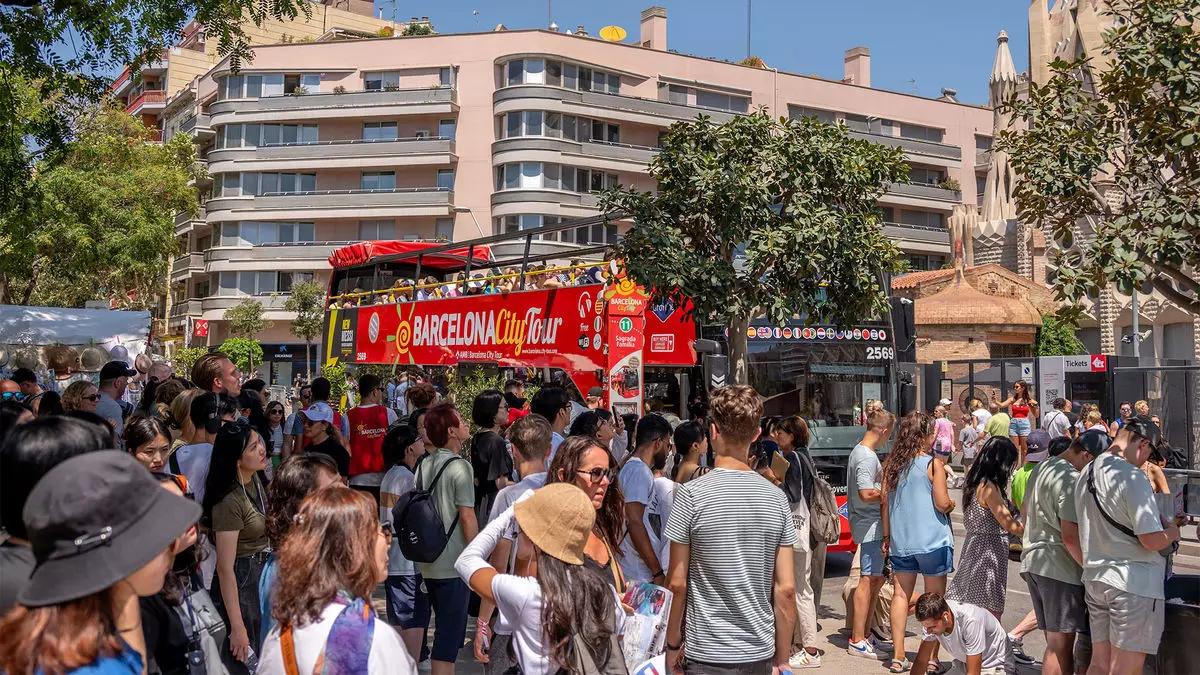In Barcelona, a city known for its vibrant culture and stunning architecture, recent protests against overtourism have sparked international attention. Thousands of locals took to the streets, armed with water guns, to express their frustration with rising housing costs, overcrowding, and the negative impacts of mass tourism on their community. While these protests highlighted important issues faced by residents, the use of squirt guns on tourists has drawn criticism from tourism industry experts and leaders.
Leaders in the tourism industry have condemned the actions of residents during the protests, stating that such confrontational tactics send the wrong message to travelers. Tom Jenkins, CEO of the European Tour Operators Association, expressed dismay at the targeted attacks on tourists, emphasizing that protests should focus on addressing the root causes of overtourism rather than alienating visitors. Despite the backlash, Spanish tourism authorities have acknowledged the concerns raised by residents and vowed to work towards sustainable tourism practices.
The protests in Barcelona have raised concerns about the city’s reputation as a tourist destination. Simon Hudson, a professor of tourism, noted that the anti-tourism demonstration may deter potential visitors who feel unwelcome in the city. However, tour operators have reported minimal impact on bookings following the protests, indicating that travelers are still interested in visiting Barcelona. Intrepid and Tauck, two major tour operators, have confirmed that their services are operating normally and have not been affected by the protests.
In response to the ongoing challenges of overtourism, Barcelona has implemented various initiatives to manage tourist influxes and address community concerns. The city has restricted cruise ships from docking near the city center, banned short-term apartment rentals, and introduced measures to control tour guide activities. These efforts aim to strike a balance between tourism and local residents’ quality of life, ensuring that Barcelona remains a sustainable destination for visitors and residents alike.
While the protests in Barcelona have shed light on the complexities of overtourism, experts suggest that a more nuanced approach is needed to address the root causes of the issue. Mislabeling all tourists as the source of residents’ grievances with rising housing costs oversimplifies the problem and hinders effective solutions. By engaging in constructive dialogue and collaboration between residents, tourism authorities, and industry stakeholders, Barcelona can navigate the challenges of overtourism while preserving its cultural heritage and welcoming visitors from around the world.

